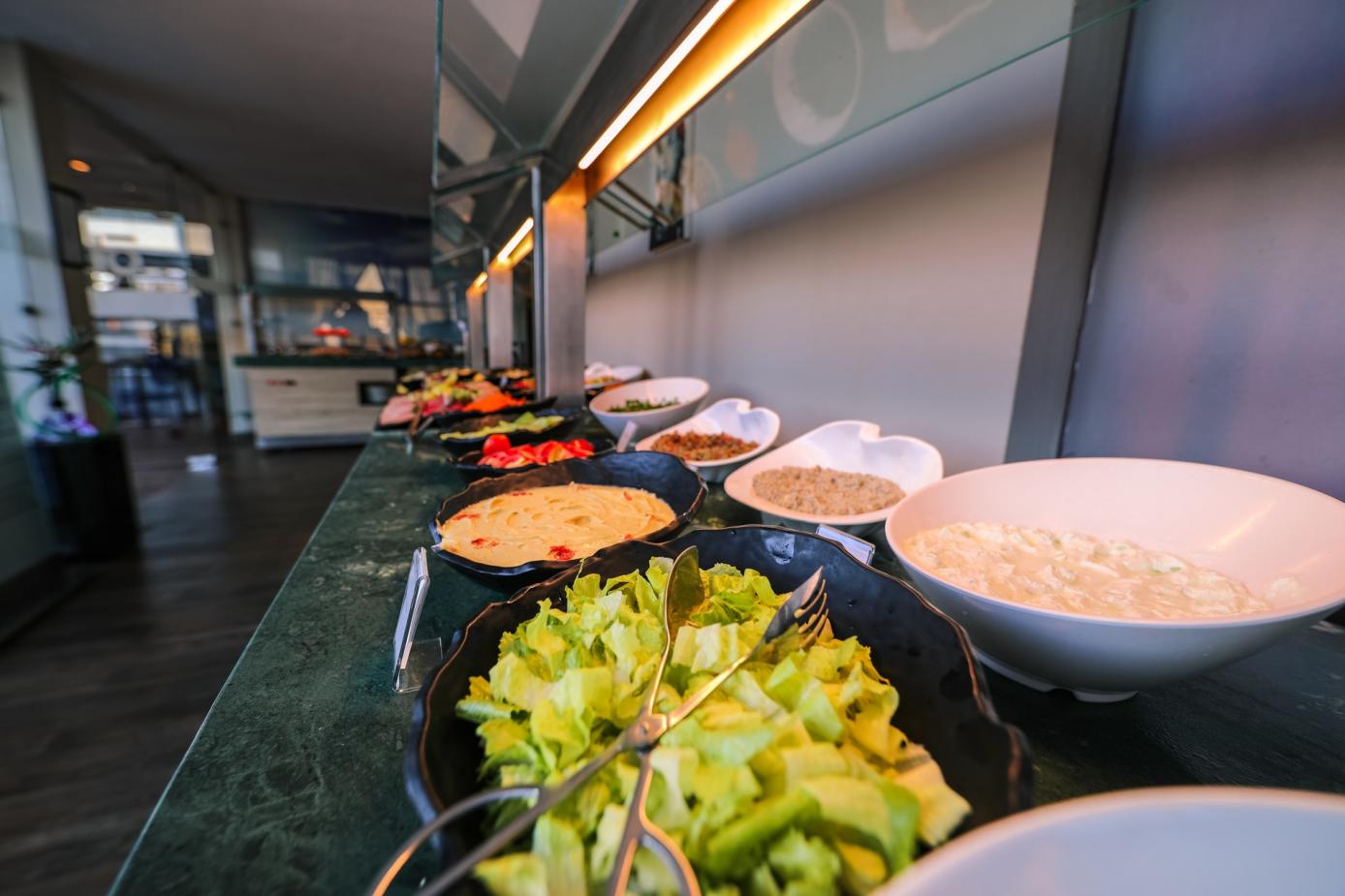How Can I Make Sure My Catering Service is Eco-Friendly?
In today's environmentally conscious landscape, choosing an eco-friendly catering service is no longer a luxury but a necessity. With the growing awareness of the impact of human activities on the planet, it's essential to make sustainable choices in all aspects of life, including catering.

Eco-friendly catering involves using sustainable practices and materials throughout the catering process, from sourcing ingredients to waste management. By choosing an eco-friendly caterer, you can significantly reduce the environmental impact of your event and contribute to a more sustainable future.
Benefits Of Choosing An Eco-Friendly Catering Service
- Reduced Environmental Impact: Eco-friendly catering practices minimize waste, conserve resources, and reduce greenhouse gas emissions, contributing to a healthier planet.
- Enhanced Brand Image: Choosing an eco-friendly caterer demonstrates your commitment to sustainability and social responsibility, enhancing your brand's reputation and attracting environmentally conscious customers.
- Cost Savings: Eco-friendly practices can lead to cost savings in the long run, such as reduced waste disposal fees and lower energy consumption.
- Improved Guest Experience: Guests appreciate the opportunity to make sustainable choices and are more likely to enjoy an event that aligns with their values.
Choosing An Eco-Friendly Caterer
Selecting an eco-friendly caterer requires careful research and consideration. Here are some key factors to look for:
- Commitment to Sustainability: Look for caterers who have a clear commitment to sustainability and can articulate their eco-friendly practices.
- Certifications and Awards: Check if the caterer has received any certifications or awards related to eco-friendly practices, such as Green Restaurant Association certification or a Sustainable Catering Award.
- Sourcing Policies: Inquire about the caterer's sourcing policies. Do they prioritize local and organic ingredients? Do they work with farmers who employ sustainable agricultural practices?
- Packaging Materials: Choose caterers who use reusable or compostable packaging materials to minimize waste.
Sustainable Food Choices
The menu plays a significant role in the environmental impact of your event. Here are some tips for making sustainable food choices:
- Plant-Based and Local: Opt for plant-based and locally sourced menu options to reduce the carbon footprint associated with meat production and transportation.
- Seasonal Ingredients: Choose dishes that utilize seasonal ingredients, which are typically fresher, tastier, and have a lower environmental impact.
- Minimize Food Waste: Encourage caterers to design menus that minimize food waste, such as offering smaller portions or creating dishes that can be easily repurposed into leftovers.
- Reusable Packaging: Encourage caterers to use reusable or compostable packaging materials for food items.
Waste Reduction And Recycling

Effective waste management is crucial for reducing the environmental impact of your event.
- Comprehensive Waste Management Plan: Implement a comprehensive waste management plan that includes recycling and composting. Provide clear signage and instructions for guests to properly dispose of waste.
- Reusable Tableware: Use reusable tablecloths, napkins, and utensils to minimize single-use items.
- Food Scraps Composting: Compost food scraps and other organic waste to divert them from landfills.
Energy Efficiency
Choosing caterers who prioritize energy efficiency can significantly reduce the environmental impact of your event.
- Energy-Efficient Appliances: Choose caterers that use energy-efficient appliances and equipment.
- Renewable Energy Sources: Encourage caterers to use renewable energy sources, such as solar or wind power, to power their operations.
- Energy-Saving Features: Opt for venues with natural lighting and energy-saving features, such as LED lighting and efficient HVAC systems.
Transportation And Logistics
The transportation of food and guests can also contribute to the environmental impact of your event.
- Fuel-Efficient Vehicles: Encourage caterers to use fuel-efficient vehicles for food transportation.
- Efficient Route Planning: Plan the catering route efficiently to minimize travel distance and emissions.
- Electric or Hybrid Vehicles: Consider using electric or hybrid vehicles for food delivery.
Water Conservation
Water conservation is an important aspect of eco-friendly catering.
- Water-Saving Appliances: Choose caterers that use water-saving appliances and practices.
- Minimize Water Usage: Encourage caterers to minimize water usage during food preparation and cleanup.
- Reusable Water Bottles: Use reusable water bottles and glasses instead of disposable plastic cups.
Sustainable Decorations
Decorations can also contribute to the environmental impact of your event.
- Natural and Biodegradable: Opt for natural and biodegradable decorations, such as potted plants or recycled materials.
- Reusable or Repurposable Items: Avoid using single-use decorations and choose reusable or repurposable items.
- LED Lights: Consider using LED lights for energy efficiency and longevity.
Education And Awareness
Educating guests and staff about the importance of eco-friendly catering practices is essential for creating a truly sustainable event.
- Guest Education: Educate guests about the importance of eco-friendly catering practices and encourage them to make sustainable choices.
- Staff Training: Train staff to properly implement eco-friendly practices and answer guest questions.
- Signage and Information: Provide signage and information about eco-friendly catering practices to raise awareness among guests.
Continuous Improvement
Eco-friendly catering is an ongoing journey, and it's important to continuously improve practices and stay current with industry trends.
- Regular Review: Regularly review and update eco-friendly catering practices to stay current with industry trends.
- Feedback and Improvement: Seek feedback from guests and staff to identify areas for improvement.
- Sustainability Goals: Set goals for ongoing sustainability initiatives and track progress over time.
By following these guidelines, you can choose an eco-friendly catering service that aligns with your values and contributes to a more sustainable future. Every event, no matter how big or small, has the potential to make a positive impact on the environment. By making informed decisions and partnering with eco-conscious caterers, you can create a truly sustainable and memorable event.
YesNo

Leave a Reply